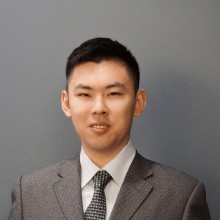Heterogeneous integration of bioelectronic materials for smart health
Bioelectronic systems that can serve as high-performance sensing and stimulation interfaces to the brain or other organ systems represent enabling technology for advanced diagnostics and therapeutics; they also have the potential to form the foundations for smart healthcare. Challenges remain in the development of bioelectronic materials and systems that, in flexible geometries, not only establish intimate and compatible bio-interfaces to targeted biological tissues but also provide needed functions with high precision, accuracy, and stability. This presentation will discuss the scientific concepts that converge soft materials innovations with translational engineering, towards an emerging class of electronic and photonic systems that offer unconventional ways to interact with the biological counterparts at multiscale. Such bioelectronic systems aim to form a dynamic interface to biological systems with adaptive sensing and stimulation by leveraging the synergy among each material component heterogeneously integrated through novel assembly approaches. I will highlight these scientific and technological innovation pathways by describing several application examples, ranging from stimulators for accelerating tissue regeneration and wound healing, to sensors of intracranial temperature, pressure, oxygenation, and electrophysiology for real-time optimization of pharmacological delivery schedules, surgical intervention procedures, and recovery/rehabilitation management routines.

Wubin Bai
University of North Carolina, Chapel Hill on September 10, 2021 at 10:15 AM in EB3 2232
Wubin Bai obtained BS degree in physics from the University of Science and Technology of China, in 2011. He received Ph.D. degree from the Department of Materials Science and Engineering at Massachusetts Institute of Technology in 2016. From 2016 to 2020, he was a postdoctoral researcher in Professor John Rogers lab at the Querrey Simpson Institute for Bioelectronics, Northwestern University. He is currently an assistant professor in the Department of Applied Physical Science at University of North Carolina at Chapel Hill. His lab focuses research on heterogeneous integration of soft materials and nanomaterials to design and develop devices for healthcare.
This lecture series features exciting and dynamic visiting and virtual speakers from across the range of ECE disciplines. Take some time every Friday morning to be inspired by these great scientists and engineers before heading into the weekend!
